|
IETICT 2013 Invited Speakers
| Keynote Speeches list |
| Andy Hopper |
Computing for the Future of the Planet |
Download |
| Sakir Sezer |
Centre for Secure Information Technologies |
Download |
| Gerd Ascheid |
Iterative Receivers Too Complex for High Data Rates |
Download |
| Patrick McNALLY |
Non-Destructive X-ray Diffraction Techniques for Analysis of Die Warpage and Stress Inside Fully Encapsulated Packaged Chips |
Download |
| John Ringwood |
The Breakthrough Technology for Economic Wave |
Download |
| Qiang Wu |
Optical fiber hetero structure based devices - filter, sensor and coupler |
Download |
 |
Prof. Andy Hopper
Andy Hopper is Professor of Computer Technology at the University of Cambridge, Head of Department of the Computer Laboratory, and elected member of the University Council. His research interests include computer networking, pervasive and sensor-driven computing, and using computers to ensure the sustainability of the planet. Andy Hopper has pursued academic and industrial careers simultaneously. In the academic career he has worked at the Computer Laboratory and the Department of Engineering at Cambridge. In the industrial context he has co-founded a dozen spin-outs and start-ups, three of which floated on stock markets, as well as working for multinational companies. He is currently Chairman of RealVNC Group and Ubisense plc. Professor Hopper received the BSc degree from the University of Wales Swansea (1974) and the PhD degree from the University of Cambridge (1978). He is a Fellow of the Royal Academy of Engineering (1996) and of the Royal Society (2006). He was made a CBE for services to the computer industry (2007). During 2012-2013 he is President of the Institution of Engineering and Technology (IET).
Title:Computing for the Future of the Planet
Abstract:download
|
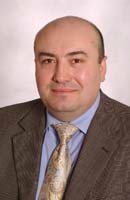 |
Prof. Sakir Sezer
Queen's University of Belfast
The Research Interests of Prof. Sakir are Tele- & Data Communication
Systems, Intergraded Circuit Design, Reconfigurable Systems, Network Processing
Architectures, System on a Chip. Prof. Sakir ‘s external Activities are Program
Committee Memberof Irish Signals and Systems Conference in 2001,2002 and 2003;
the Steering Committee Member of Irish Signals and Systems Conference;
appointed as General Chair to organize the Irish Signals and Systems Conference in
2004 in Belfast; Program Committee Member of Reconfigurable Architectures
Workshop and Publicity Chair and Industrial Exhibition Organizer of FPL 2001 and
the Member of IEEE and IEE.
Title:Centre for Secure Information Technologies
|
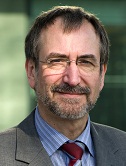 |
Prof. Gerd Ascheid
Dr. Ascheid received his Diploma and PhD degrees in Electrical Engineering (Communications Eng.) from RWTH Aachen University. In 1988 he started as a co-founder CADIS GmbH which successfully brought the system simulation tool COSSAP to the market. From 1994-2003 Gerd Ascheid was Director / Senior Director with Synopsys, a California-based EDA market leader, In 2002 he was co-founder of LisaTek whose processor design tools are now part of the Synopsys product portfolio. Since April 2003 Gerd Ascheid heads the Institute for Integrated Signal Processing Systems of RWTH Aachen University. He is also coordinator of the UMIC (Ultra-high speed Mobile Information and Communication) Research Centre at RWTH Aachen University. His research interest is in wireless communication algorithms and application specific integrated platforms, in particular, the mobile terminals.
Title : Iterative Receivers: Too Complex for High Data Rates?
Abstract:download
|
 |
Prof. Patrick McNally
Prof. Patrick McNally received the BE (First Class Hons.) from University College, Galway, Ireland, and the degrees of ScM and PhD from Brown University, Rhode Island, USA in 1988 and 1992, respectively. He is currently Head of The School of Electronic Engineering in Dublin City University and also directs The Rince Institute’s Nanomaterials Processing Laboratories. He is Chief Technology Officer & Founding Director of Sonex Metrology Ltd., a spin-out form DCU exploiting photoacoustics technology for semiconductor and solar materials metrology (since Nov 2010). In 2006 he was appointed Professor (Personal Chair) in the School of Electronic Engineering at Dublin City University (DCU), Ireland, and was Director of the Rince Institute at DCU (2002-2004). He is a member of the following: Institute of Engineers of Ireland (Fellow), Institute of Physics (Fellow), & I.E.E.E. (Senior Member), He is a Member, Editorial Boards of Journal of Materials Science: Materials in Electronics and Editor-in-Chief of Applied Physics Research and has authored or co-authored more than 300 scientific papers. He led the development of Ireland’s first Postgraduate Taught Masters course in Nanotechnology which was launched in Sept. 2005. Prof. McNally’s main research interests include materials and electronic device process characterisation/metrology and novel materials for Si-based photonics, x-ray diffraction imaging (XRDI) especially 3D-XRDI and 3D Surface Modelling for strain and defect mapping, photoacoustics hardware and software design, and novel materials for Si-based photonics (principally copper halides).
Title : Non-destructive X-ray DiffractionTechniques for Analysis of Die Warpage and Stress Inside Fully Encapsulated Packaged Chips
Abstract:download
|
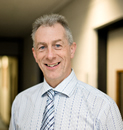 |
Prof. John Ringwood
John Ringwood is currently Professor of Electronic Engineering and Associate Dean for Engineering in the Faculty of Science and Engineering at the National University of Ireland, Maynooth. He developed the Dept. of Electronic Eng. at NUI Maynooth from a green field site in 2000 and served as Head for a term of 6 years.
He has published over 200 peer-reviewed journal and conference papers. He received the Enterprise Ireland Commercialisation (Industrial Technologies) Award in 2008 and holds two patents in the area of wave energy. He has negotiated the licensing of modelling, control and fault prediction technology to industry, with 4 commercial licenses delivered to date.
With an increasing research focus on ocean energy, John formalised the ‘Centre for Ocean Energy Research’ at NUI Maynooth in 2010. The Centre currently has 12 staff, with further projects in the pipeline and has close collaborations with a number of wave energy device developers in Ireland, the UK and the USA. The Centre organises the (now annual, since 2009) NUI Maynooth Wave Energy Workshop and a range of other events to promote industry/academic collaboration and technology.
John has 30 years of research experience in the development and application of modelling and control methods across a wide range of industrial applications, including bioprocesses, human and animal physiology, boiler systems, robotics, marine systems, steel mills, time series forecasting (particularly in the area of electrical load forecasting), semiconductor manufacturing and diary processing. He has been involved with applications in ocean energy for the past 10 years.
Title:ICT: The breakthrough technology for economic wave energy ?
Abstract :download
|
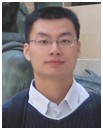 |
Prof. Liang Zhou
Dr. Zhou Liang received his Ph.D. degree major at Electronic Engineering both from Ecole Normale Superieure (E.N.S.), Cachan, France and Shanghai Jiao Tong University, Shanghai, China in 2009. From 2009 to 2010, he was a postdoctoral researcher in ENSTA-ParisTech, Paris, France. From 2010 to 2011, he was a Humboldt Research Fellow in Technical University of Munich, Munich, Germany. Now, he is a professor in Key Lab of Broadband Wireless Communication and Sensor Network Technology (Nanjing University of Posts and Telecommunications), Ministry of Education, China.
His research interests are in the area of multimedia communications, in particular, resource allocation and scheduling, media-aware cooperative communications, cross-layer design, multimedia security, multimedia signal processing. He currently serves as an editor for IET Communications, Wireless Communications and Mobile Computing, International Journal of Ad Hoc and Ubiquitous Computing, KSII Transactions on Internet and Information Systems, and guest editor for IEEE Systems Journal, EURASIP Journal of Wireless Communications and Networking, ACM/Springer Multimedia Systems Journal, and International Journal of Communications System. He also serves as Co-Chair and Technical Program Committee (TPC) member for a number of international conferences and workshops (e.g., IEEE Globecom’10-12, IEEE ICC’10-12 etc.). He receives Best Paper Award from IEEE ICC 2012. He is a member of IEEE, IEEE MMTC, and IEEE MMSP.
Title : Energy-Spectrum Efficiency Tradeoff in Mobile Multimedia Sensor Networks
Abstract :download
|
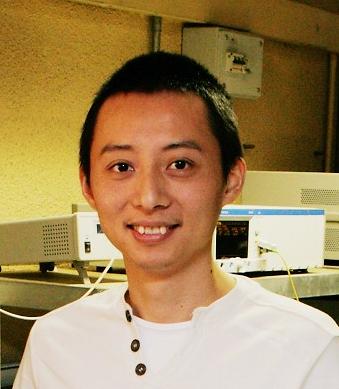 |
Dr. Qiang Wu
Dr. Wu Qiang received his B.S. degree from Beijing Normal University and worked for a number of years as an Assistant Lecturer in physics at Jiangxi Normal University, China. He then subsequently moved to Beijing University of Posts and Telecommunications, to carry out research into multi-channel fibre Bragg grating dispersion compensation, leading to the award of his Ph.D. in 2004. From 2004 to 2008, He worked as a Senior Research Associate and Postdoctoral Research Associate in City University of Hong Kong and Heriot-Watt University in Edinburgh respectively. In 2008 he took a Stokes Lecturer post in the School of Electronic and Communications Engineeing and the Photonics Research Centre, Dublin Institute of Technology. He is also an adjunct professor in Beijing University of Posts and Telecommunications. His research interests include fiber Bragg grating, optical sensing and surface plasmon resonant based nanotechnology and its applications for biosensing. He has authored or co-authored more than 120 articles in academic journals and international conferences. He holds three patents. He has been highlighted and interviewed by the journal Electronics Letters (vol. 47, no.12, 2011) with the objective of understanding the background and rationale for his research on singlemode-multimode-single fiber structures.
Title : Optical fiber heterostructure based devices – filter, coupler and sensor
Abstract :download
|
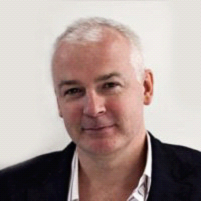 |
Prof. Vincent Wade
Vincent Wade is Director of CNGL, a world leading multi-institutional research centre focusing on multilingual, multi modal globalisation of digital content led by Trinity College Dublin (TCD) University.. He is also Professor of Intelligent Systems in the School of Computer Science and Statistics, in TCD. Vincent holds a BSc (Hons) in Computer Science, an MSc (by research) and PhD from Trinity College Dublin. In 2002 Vincent was awarded Fellowship of Trinity College (FTCD) for his contribution to research in the areas of knowledge management, web based personalisation and adaptive content technologies. Vincent was a visiting scientist at IBM (2006-9) and holds multiple patents in the area of personalisation and adaptive digital content. He has authored almost three hundred scientific papers in peer reviewed research journals and international conferences and has received seven ‘best paper’ awards for IEEE, ACM, and IFIP conferences. He has an H index is 23 (Google scholar). In 2010 he received the European Award of Language Technology. In 2010 he founded the Learnovate Centre which is a industry-academic led research centre focusing on developing innovations across learning in schoools, corporate learning and further education.
Title : CNGL’s Multilingual Personalisation Research – Empowering Global Users
Abstract :download
|
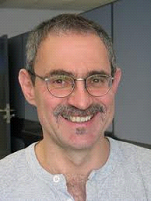 |
Prof. Josef Van Genabith
Josef van Genabith is an Associate Professor in the School of Computing at Dublin City University and currently the Deputy Director of the Centre for Next Generation Localisation (CNGL). He is the founding Director of CNGL (2007-2013) and previously served as the Director of the National Centre for Language Technology (NCLT) 2001-2009. He has led national and international research projects, including Science Foundation Ireland and Enterprise Ireland funded research and worked as the local DCU lead PI for many EU-funded projects, including EuroMatrixPlus, META-NET, EXPERT and QTLaunchPad. His research focuses on Machine Translation, Localisation, and Text Analytics (Parsing and Generation).
Title : Localisation and Language Technologies in Ireland: a Gateway into Europe
Abstract :download
|
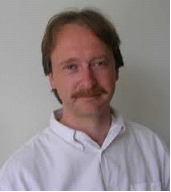 |
Mr. Reinhard Schaler
Reinhard Schäler has been involved in the localisation industry in a variety of roles since 1987. He is the founder and founding editor of a number of specialized Journals, including the International Journal for Localisation, of a number of industry groups, as well as the Localisation Research Centre at the University of Limerick, Ireland. He is principal investigator of the Irish Government co-funded Centre for Next Generation Localisation (CNGL). In 2009, he established The Rosetta Foundation and the Dynamic Coalition for a Global Localization Platform: Localization4all under the umbrella of the UN’s Internet Governance Forum. His aim and that of The Rosetta Foundation is to build the infrastructure to support nonmarket social localisation and translation. He is course director of the MSc in Multilingual Computing and Localisation at the University of Limerick, the world’s first dedicated postgraduate localisation programme.
Title : The Localisation Research Centre - Localisation Research, Education, and Networking since 1995
Abstract :download |
Session Chair of Communication Technology |
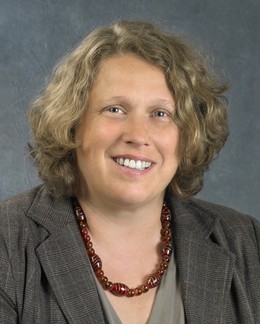 |
Dr. Sabine Moebs
Dr. Sabine Moebs received her PhD in Electronic Engineering from Dublin City University in 2011. The impact of network conditions on the user experience in adaptive multimedia e-learning systems was the topic of her doctoral work. She holds an MSc by Research in the area of Learning Technologies from the National College of Ireland and the Diploma in Business Informatics with a major in e-Commerce from Baden-Wuerttemberg Cooperative State University, Germany. In 2002 she started as a co-founder X-Pie GmbH, which successfully brought a system to administer UNIX systems on a Macintosh user interface to the market. From 2003-2005 she worked as a researcher at Fraunhofer IESE. Later in 2005 she was founding president and head of marketing and software product development in a Swiss start-up, developing tracking and tracing software for the logistics industry. She is currently an Irish Research Council Postdoctoral Fellow with the RINCE Institute at Dublin City University. Her current research interests are user experience and accessibility of adaptive sytems for different user groups, with a particular focus on cross-device development and Learner UX.
Title : How to Make Good Use of ICT in 3 Easy Steps
|
Sponsored and Organized by |